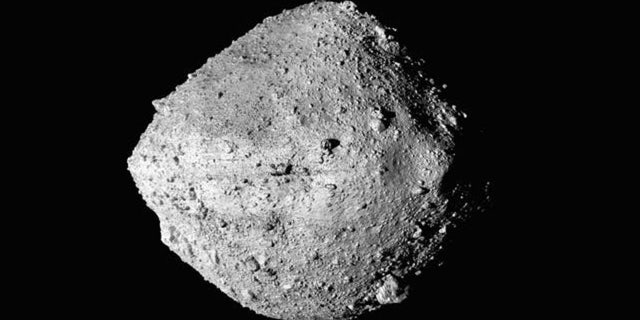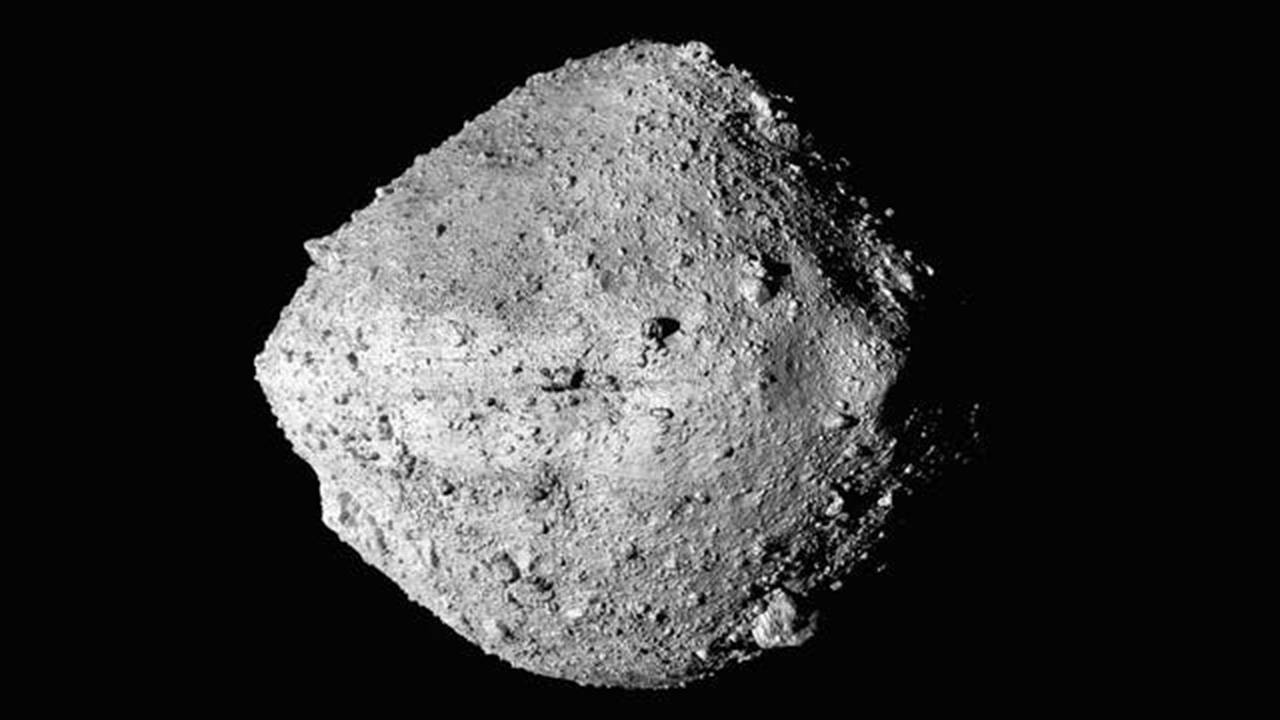Astronomers are tracking a large and “potentially hazardous” asteroid that is set to make a relatively close pass by the Earth on Tuesday.
The asteroid, called 7482 (1994 PC1), is expected to fly by our planet around 4:51 p.m., at about five times the distance from the Earth to the Moon.
“Near-Earth #asteroid 1994 PC1 (~1 km wide) is very well known and has been studied for decades by our #PlanetaryDefense experts,” NASA tweeted last Wednesday. “Rest assured, 1994 PC1 will safely fly past our planet 1.2 million miles away next Tues., Jan. 18.”
GEMINID METEOR SHOWER: WHAT TO KNOW
With a diameter of roughly 3,451 feet, 1994 PC1 is larger than the Burj Khalifa in Dubai and more than twice the size of the Empire State Building in New York City.
It’s also fast and will be traveling at a speed of roughly 45,000 mph when it passes by Earth on Tuesday, according to NASA.

A mosaic image of asteroid Bennu, composed of 12 PolyCam images collected on December 2, 2018 by the OSIRIS-REx spacecraft from a range of 15 miles (24 km). NASA/Goddard/University of Arizona/Handout via REUTERS
(Reuters)
While it won’t hit Earth, NASA deems 1994 PC1 a “potentially hazardous object” because of its size and distance from our planet.
NASA TO CRASH SPACECRAFT INTO ASTEROID TO TEST PLANETARY DEFENSE: WHAT TO KNOW
If you wish to check out space rock, it’s currently being tracked by NASA’s “eyes on asteroid” website. You can also watch it on the Virtual Telescope Project’s livestream, which is set to start at 3:00 p.m. ET.
1994 PC1 was discovered in 1994 at the Siding Spring observatory in Australia by astronomer Robert McNaught.
CLICK HERE TO GET THE FOX NEWS APP
After the pass on Tuesday, the asteroid won’t come as close to the Earth for another two centuries, according to Universe Today, a space and astronomy news website.





